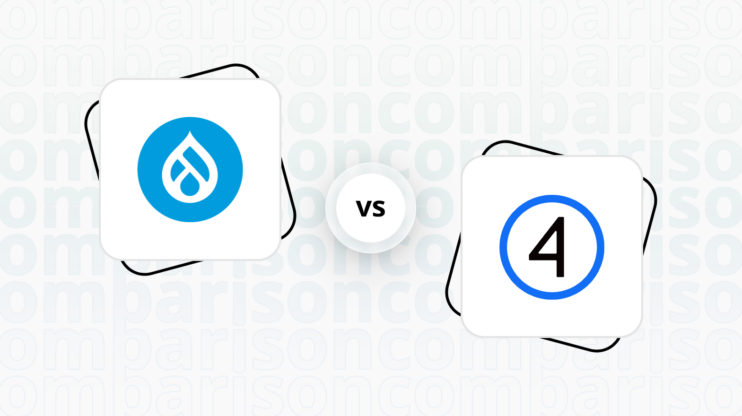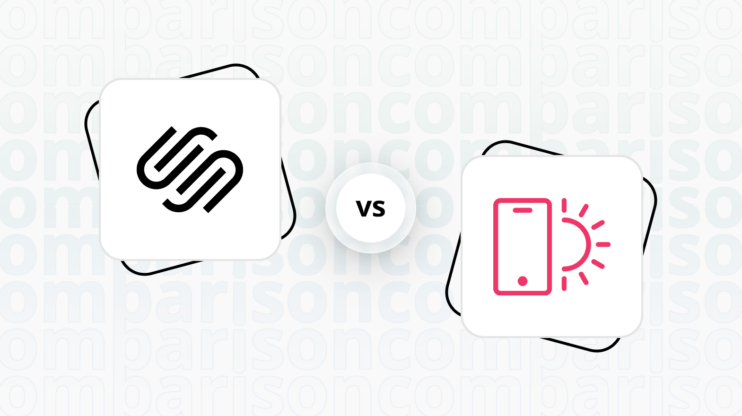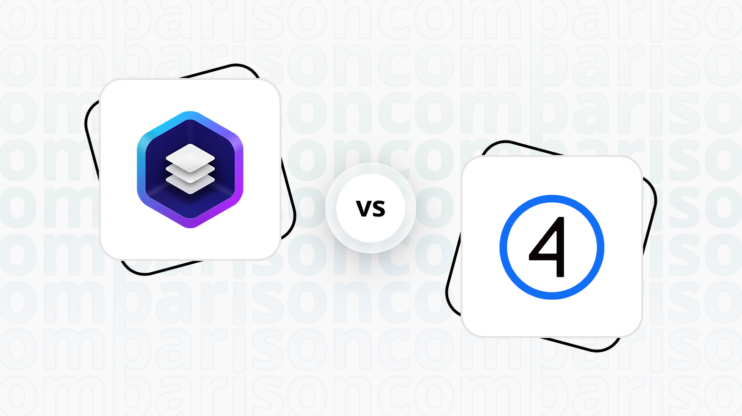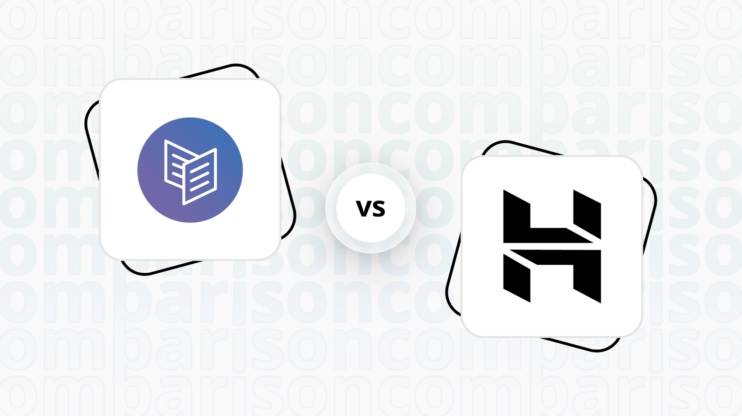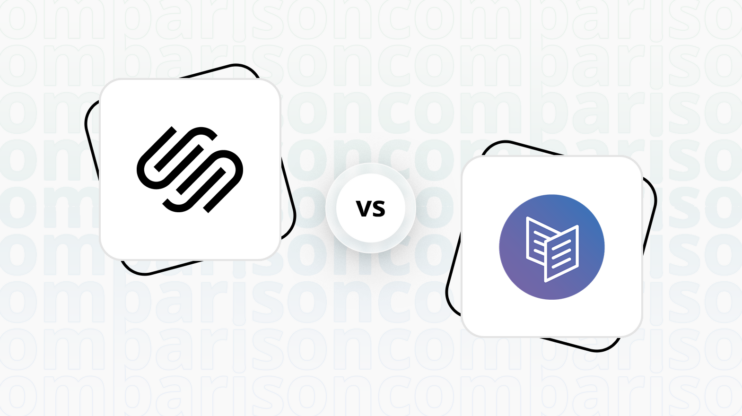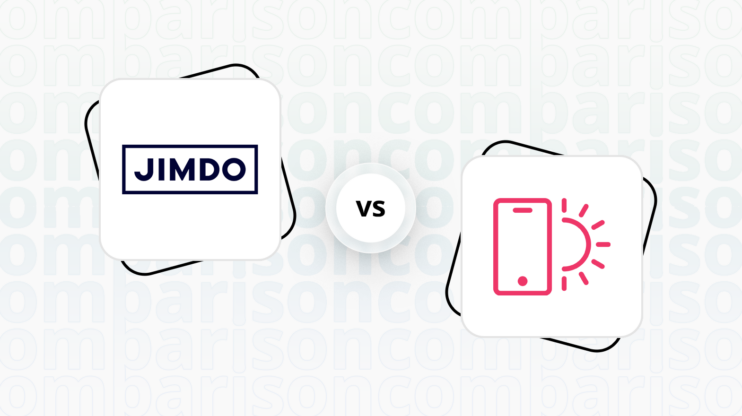Final verdict
SubHub vs Sellfy: Both platforms cater to different needs, with SubHub focusing on membership sites and Sellfy on a broader range of ecommerce products.
-
SubHub (Overall Grade: 5.6/10)
is tailored for creating and managing membership sites, offering tools for subscription models, member access, and exclusive content. It excels in providing customizable templates and a user-friendly website editor. However, it falls short in ecommerce-specific features and hosting quality. SubHub is ideal for content creators and entrepreneurs looking to build a community and monetize their content without needing advanced technical skills. -
Sellfy (Overall Grade: 6.0/10)
stands out as an all-in-one ecommerce platform for creators selling digital, physical, subscription-based, and print-on-demand products. It offers a simple, user-friendly interface, versatile product listings, and robust marketing tools. Sellfy excels in hosting quality, security, and providing a comprehensive suite of ecommerce features. It is a great choice for creators looking to manage, market, and scale their online business effectively.

|

|
|
|---|---|---|
|
Design functionalities & templates |
6.8 |
5.2 |
|
Ease of use |
7.7 |
7.8 |
|
Ecommerce |
5.9 |
6.8 |
|
Website Editors |
6.9 |
6.8 |
|
Product testing options |
7.0 |
7.3 |
|
Price |
6.8 |
7.9 |
|
Hosting quality |
5.5 |
7.3 |
|
Website speed optimization |
5.6 |
5.4 |
|
Plugins and integrations |
5.7 |
6.7 |
|
Marketing features |
5.7 |
7.1 |
|
Customer support |
6.3 |
5.8 |
|
Security |
4.0 |
7.2 |
|
User Management |
5.2 |
2.0 |
| Overall |
5.6 |
6.0 |
Best for ecommerce
 5.9
5.9
 6.8
6.8
Verdict
: SubHub vs Sellfy reveals that Sellfy is better suited for a broader range of ecommerce needs, while SubHub excels in membership and subscription-based models.
-
SubHub
: SubHub is designed for membership and subscription-based businesses, offering tools for content creators to monetize their work. It integrates with PayPal and Stripe for payment processing and supports physical and digital product listings. However, it lacks ecommerce-specific templates and advanced ecommerce features, making it less ideal for traditional online stores. Best For Ecommerce score: 5.9. -
Sellfy
: Sellfy is an all-in-one ecommerce platform that supports a wide array of products, including digital, physical, subscription-based, and print-on-demand items. It offers a user-friendly interface, comprehensive marketing tools, and robust payment processing options. Sellfy’s templates are designed for online stores, providing a more tailored experience for ecommerce businesses. Best For Ecommerce score: 6.8.
Best for informational & business websites
 7.2
7.2
 5.7
5.7
Verdict
: SubHub is better suited for informational and business websites, particularly those focused on membership and content monetization, while Sellfy is more tailored for ecommerce and creators selling various products.
-
SubHub
: SubHub excels in creating and managing membership sites, making it ideal for content creators and entrepreneurs looking to build a community and monetize their content. Its customizable templates and user-friendly interface make it a strong choice for informational websites. With a score of 7.2, SubHub offers a range of tools tailored for content creators, emphasizing ease of use and efficiency. -
Sellfy
: Sellfy, scoring 5.7, is an all-in-one ecommerce platform designed for creators selling digital, physical, subscription-based, and print-on-demand products. While it offers a simple and user-friendly interface, it is more focused on ecommerce functionalities rather than purely informational websites. Sellfy’s versatility in catering to a wide array of products gives it an edge in ecommerce but makes it less ideal for purely informational business websites.
Detailed comparison
Design functionalities & templates
Design FunctionalitiesRepresents how well each platform allows for creative design and customization of websites.Score Components:
- Template Variety (30%): Range and quality of design templates.
- Customization (30%): Flexibility and options for design alterations.
- User Interface (20%): Ease and intuitiveness of the design process.
- Responsiveness (10%): Adaptability to different devices and screen sizes.
- Innovation (10%): Unique design features and tools.
 6.8
6.8
 5.2
5.2
🏆
Winner: SubHub.
If you’re looking for a platform that offers more creative control and a wide array of design features, SubHub is the preferred choice.
SubHub website builder offers a variety of customizable membership website templates designed to cater to different needs and themes, including fitness, yoga, relationship, ministry, learning, craft, wellness, business, and modern living, among others. There are 14 specifically themed templates available, each designed to help users jump-start the design of their membership website homepages. These templates are fully customizable, allowing users to modify layouts, add or remove sections, and tailor content to fit their brand, ensuring flexibility in the design process.
Compared to SubHub, Sellfy provides a collection of design templates through its theme store, located in the Store Customizer. Users have the option to preview these themes before applying them to their websites. As of the latest information, Sellfy offers five main theme options: Lumiére, Noir, Savant, Idée, and Mode. These themes cater to various aesthetic preferences and can be published to go live on a user’s website after selection and customization.
Get a head start on website creation with AI
Create a custom website tailored to your business needs 10X faster with 10Web AI Website Builder!
Ease of use
Ease of useReflects the platform’s overall user-friendliness.Score
Components:
- Learning curve (40%): Quickness and ease of getting started.
- Interface design (30%): Simplicity and intuitiveness of layout.
- User guidance (20%): Quality of tutorials and support.
- Flexibility (10%): Adaptability to various user skills.
 7.7
7.7
 7.8
7.8
🏆 Winner: Sellfy
. With a score of 7.8, Sellfy slightly edges out SubHub, which scored 7.7. Both platforms are user-friendly and designed for creators and entrepreneurs. However, Sellfy’s versatility in catering to a wider array of products gives it a slight advantage.
Learning Resources
Both SubHub and Sellfy offer learning resources to help users navigate their platforms. However, neither platform has a large community of users for additional support.
For ecommerce
EcommerceMeasures the platform’s effectiveness in supporting online business activities.Score Components:
- Ecommerce themes and templates (20%): Variety and design of templates.
- Product management (25%): Ease of managing and organizing products.
- Payment options (25%): Variety and convenience of payment methods.
- Ecommerce features (20%): Features for managing an ecommerce store.
- Integration (10%): Compatibility with external e-commerce tools and services.
 5.9
5.9
 6.8
6.8
SubHub and Sellfy are both designed for creators and entrepreneurs, but they cater to different needs. SubHub is more focused on membership and subscription-based businesses, while Sellfy is an all-in-one ecommerce platform for selling a wide array of products.

|

|
|
|---|---|---|
|
Ecommerce themes and templates |
3.0 |
7.0 |
|
Product page customization |
6.5 |
6.5 |
|
Payment processing and commissions |
7.0 |
8.0 |
|
POS capabilities |
0.0 |
4.0 |
|
Payment gateways |
6.0 |
6.0 |
|
Product numbers |
5.0 |
7.5 |
|
Additional ecommerce features |
4.5 |
6.5 |
SubHub ecommerce features:
- Paypal and Stripe integration
- Physical and Digital product listings
- Pay-per view products
Sellfy ecommerce features:
- Product Listings
- Payment Gateways integration
- Product categories
Ecommerce themes & templates
SubHub does not offer ecommerce specific templates. On the other hand, all the templates of Sellfy are designed for online stores, providing a more tailored experience for ecommerce businesses.
Product page customization
SubHub offers a range of product page customization options, allowing for the addition of physical items, digital downloads, and pay-per-view content. Features include the ability to manage product variants, upload images, and set visibility preferences. Users can also implement SEO strategies through meta tags and manage tax settings. Additional functionalities include member-specific discounts, image carousels, and individualized shipping costs.
Sellfy supports a diverse range of products including digital goods like music, videos, ebooks, and software, as well as physical products and print-on-demand merchandise such as t-shirts and mugs. The platform enables the sale of subscriptions, offering a means for recurring revenue. Sellfy provides tools for product protection and piracy prevention, ensuring secure file hosting and delivery.
Payment processing
Both SubHub and Sellfy support two main payment gateways: Stripe and PayPal. These integrations allow for secure payment processing for subscriptions and store items using debit or credit cards. Neither platform charges commissions on transactions, though payment processors’ standard fees apply. While Sellfy is robust in facilitating online sales with features for product management and marketing, it does not explicitly mention support for Point of Sale (POS) capabilities, indicating a focus on eCommerce rather than physical retail transactions.
Website Editors
Website EditorsEvaluates the platforms’ website building and editing capabilities.Score Components:
- Customization tools (40%): Range and power of editing features.
- Editor usability (30%): User experience within the editor.
- Design flexibility (20%): Freedom in layout and design changes.
- Update and maintenance ease (10%): Simplicity of updating and maintaining the site.
 6.9
6.9
 6.8
6.8
🏆
Winner: SubHub
. SubHub, with a score of 6.9, offers a user-friendly website builder tailored for creating and managing membership sites. Its features encompass customizable templates, diverse content publishing options, and flexible subscription plans with seamless integration for recurring revenue through payment processors. Additionally, SubHub supports online course creation, provides marketing tools like landing page builders, and offers detailed analytics for monitoring website metrics.
Sellfy’s editor, scoring 6.8, offers a straightforward and user-friendly platform for creating online stores, focusing on simplicity over advanced customization. It supports the sale of digital, physical, subscription-based, and print-on-demand products, alongside integrated marketing tools for promotion and sales optimization. Despite some limitations in design customization and app integrations, Sellfy aims to provide a comprehensive e-commerce solution for entrepreneurs and creators.
Mobile editor/app
 4.0
4.0
 7.5
7.5
🏆
Winner: Sellfy
. Both SubHub and Sellfy do not offer a dedicated mobile editor app for changing the layout and design of the website. However, Sellfy provides a mobile app that allows store owners to manage their online stores on the go, offering functionalities such as viewing store performance metrics, managing and tracking orders, and receiving customized notifications. On the other hand, SubHub only allows users to manage some content on their website using the mobile browser version.
Therefore, Sellfy has a higher mobile editor score than SubHub.
Product testing options
Product Testing OptionsAssesses the options for trying out platform features before commitment.Score Components:
- Trial quality (40%): Extent and usefulness of the trial or free version.
- Feature accessibility (30%): How many features are available to test.
- Trial duration (20%): Length of the trial period.
- Ease of transition (10%): Smoothness of moving from trial to paid plans.
 7.0
7.0
 7.3
7.3
Overall Result
:
Sellfy Wins
. Sellfy scores slightly higher than SubHub in product testing options with a score of 7.3 against SubHub’s 7.0. Both platforms offer a 14-day free trial and allow testing of premium features during the trial. However, Sellfy stands out with its 30-day money back guarantee, which is significantly longer than SubHub’s 7-day policy.

|

|
|
|---|---|---|
|
Free Plan |
No | No |
|
Trial Duration |
14 days | 14 days |
|
Testing Premium Features |
During the free trial | During the free trial |
|
Money Back Guarantee |
7 days |
30 days |
Price
PriceLooks at the cost-effectiveness and value for money of each platform.Score Components:
- Plan value (40%): What each pricing tier offers.
- Transparency and clarity (30%): Clearness of pricing structures.
- Flexibility of plans (20%): Range of options to suit different budgets.
- Hidden costs (10%): Additional expenses not included in the plan.
 6.8
6.8
 7.9
7.9
Sellfy has a higher price score than SubHub, indicating that it may offer better value for the price.

|

|
|
|---|---|---|
|
$25-$50 |
Starter ($47/month): Up to 500 members, 5 GB storage, secure payment processing, course builder, 5 landing pages, e-commerce. Value for price: 6.5 |
Starter ($29/month): Ideal for growing businesses with sales up to $10k/year. Offers unlimited products, digital and subscription products, domain connection, and 2,000 email credits. Annual savings available. Value for price: 7.5 |
|
$70-$100 |
Pro ($97/month): Up to 2000 members, 50 GB storage, removes SubHub branding, 15 landing pages, along with Starter features. Value for price: 7.5 |
Business ($79/month): Targets businesses with up to $50k in yearly sales, offering everything in the Starter plan plus 10,000 email credits, product and store design migration, product upselling, cart abandonment tools, and Sellfy branding removal. Value for price: 8.0 |
|
$100+ |
Premium ($147/month): Unlimited members, 200 GB storage, email white labelling, 30 landing pages, plus all Pro features. Value for price: 8.5 |
Premium ($159/month): For businesses with up to $200k/year in sales. Includes everything in the Business plan plus 50,000 email credits, product migration, and priority support. Annual savings are also offered. Value for Price: 8.5 |
location. As a result in rare cases the prices displayed here can differ from the ones you see on their
websites.
Hosting quality
Hosting
qualityExamines the reliability and performance of the hosting solutions.Score Components:
- Uptime (40%): Consistency and reliability of website availability.
- Speed (30%): Loading times and performance.
- Bandwidth and storage (20%): Sufficiency of resources provided.
- Data centers (10%): Quality and distribution of hosting infrastructure.
 5.5
5.5
 7.3
7.3
Winner: Sellfy
. Sellfy outperforms SubHub in hosting quality, despite both platforms not disclosing their hosting type or data center locations. Sellfy’s uptime of 99.99% gives it an edge over SubHub, which does not provide uptime statistics or guarantees. SubHub offers managed cloud hosting with storage limitations and daily backups, but falls short in transparency and reliability compared to Sellfy.

|

|
|
|---|---|---|
|
Do they offer hosting? |
Yes, with storage limitations and daily backups | Yes |
|
Type of hosting: |
Managed Cloud Hosting | Not disclosed |
|
Uptime: |
Not provided | 99.99% |
|
Uptime Guarantee: |
No | No |
|
Data Centers: |
Not disclosed | Not disclosed |
Website Speed Optimization
Website Speed OptimizationEvaluates optimization of website loading timesScore Components:
- PageSpeed Score (30%): Google’s score indicating performance optimization.
- Loading Time (30%): The average time until a website is fully interactive.
- Mobile Optimization (15%): Optimization effectiveness for mobile devices.
- Resource Optimization (15%): Optimizing images, scripts, and other heavy resources.
- CDN Usage (10%): Use of CDN to enhance speed across geolocations.
 5.6
5.6
 5.4
5.4
🏆 Winner: Draw
Both SubHub and Sellfy have similar website speed optimization strategies and neither platform provides specific information on their Core Web Vital improvements. Their load times and PageSpeed scores also vary depending on optimization and website complexity.

|

|
|
|---|---|---|
|
Focus |
Membership sites |
eCommerce for creators |
|
Performance Tools |
Not specified |
Not specified |
|
Key Strategies |
Image Optimization, Caching, Mobile Optimized design |
Code Minification, Caching, Image Optimization |
|
Load Times |
Varies depending on optimization and website complexity |
Varies depending on optimization and website complexity |
|
Page Speed Scores Range |
Varies depending on optimization and website complexity |
Varies depending on optimization and website complexity |
|
Core Web Vitals Improvement |
Not specified |
Not specified |
SubHub, a website builder designed specifically for creating and managing membership sites, focuses on image optimization, caching, and mobile-optimized design for speed optimization. However, it does not provide specific information on their Core Web Vital improvements and their load times and PageSpeed scores vary depending on optimization and website complexity.
Sellfy, an all-in-one eCommerce platform tailored for creators, focuses on code minification, caching, and image optimization for speed optimization. Similar to SubHub, Sellfy does not provide specific information on their Core Web Vital improvements and their load times and PageSpeed scores vary depending on optimization and website complexity.
Get a head start on website creation with AI
Create a custom website tailored to your business needs 10X faster with 10Web AI Website Builder!
Plugins and integrations
Plugins and integrationsMeasures the range and effectiveness of additional plugins and integrations.Score Components:
- Variety of options (40%): Range of available add-ons.
- Integration smoothness (30%): Ease of integrating plugins into the site.
- Quality of plugins (20%): Functionality and reliability of the options.
- Custom integration capabilities (10%): Support for custom or third-party integrations.
 5.7
5.7
 6.7
6.7
🏆 Winner: Sellfy.
Sellfy scores 6.7, offering a variety of integrations to enhance ecommerce functionality and automate workflows. SubHub, with a score of 5.7, provides a set of built-in features and limited third-party integrations, primarily with MailChimp, Google Analytics, and payment gateways like Stripe and PayPal.
While SubHub is designed with a focus on simplicity and integrated functionalities for building membership-based websites, Sellfy offers various integrations, including Google Analytics, Facebook Live Chat, Zapier, and social media advertising tools, to enhance ecommerce functionality and automate workflows. The integration with Zapier notably expands possibilities by connecting to thousands of apps, supporting a broad range of automation options.
Marketing Features
Design FunctionalitiesRepresents how well each platform allows for creative design and customization of websites.Score Components:
- Template Variety (30%): Range and quality of design templates.
- Customization (30%): Flexibility and options for design alterations.
- User Interface (20%): Ease and intuitiveness of the design process.
- Responsiveness (10%): Adaptability to different devices and screen sizes.
- Innovation (10%): Unique design features and tools.
 5.7
5.7
 7.1
7.1
🏆
Overall Winner: Sellfy
. Sellfy stands out for its comprehensive suite of marketing tools, including SEO features, email marketing, social media integration, analytics and reporting, and ads and promotions. SubHub, while offering a range of marketing tools, lacks social media integration which is a key aspect of modern digital marketing.

|

|
|
|---|---|---|
|
SEO Tools |
|
|
|
Email Marketing |
|
|
|
Blogging |
|
|
|
Social Media Integration |
|
|
|
Analytics and Reporting |
|
|
|
Ads and Promotions |
|
|
Customer Support
Customer supportEvaluates the quality and availability of support options.Score Components:
- Response time (40%): Speed of support responses.
- Support quality (30%): Effectiveness and helpfulness of the support.
- Availability (20%): Range of support channels (phone, chat, email).
- Resource richness (10%): Quality of self-help and educational materials.
 6.3
6.3
 5.8
5.8
🏆 Winner: SubHub
. In the SubHub vs Sellfy comparison, SubHub takes the lead with a customer support score of 6.3. SubHub offers email support and a support portal for detailed queries, along with an FAQ section for quick answers to common questions. This ensures that users have multiple avenues to seek help and resolve issues efficiently.
Sellfy, on the other hand, provides 24/7 customer support, which is a significant advantage. However, the lack of phone support and live chat options limits the immediacy of assistance. Users can rely on email support and a knowledge base for self-service, but the absence of real-time support channels may be a drawback for some.
Overall, while both platforms have their strengths, SubHub’s more structured support options give it an edge in this category.
Security
SecurityLooks at the platforms’ security measures and data protection.Score Components:
- Data protection (40%): Safeguards for user and customer data.
- SSL and encryption (30%): Implementation of secure connections.
- Compliance (20%): Adherence to industry security standards.
- Regular updates (10%): Frequency of security updates and patches.
 4.0
4.0
 7.2
7.2
🏆
Winner: Sellfy
. Sellfy’s security measures are more comprehensive and transparent than SubHub’s. Sellfy employs secure payment processors, unique download links, limited download attempts, and additional tools like PDF stamping to deter content sharing. These measures significantly mitigate risks and protect creators’ content.
On the other hand, SubHub does not disclose any specific information about the website security measures it provides. Its privacy policy outlines their approach to collecting, using, and protecting user personal data, emphasizing compliance with GDPR and CCPA regulations. However, without more detailed information about their website security measures, it’s difficult to compare them to Sellfy’s robust security features.
AI Capabilities
AI capabilitiesMeasures the effectiveness of AI-driven features and tools.Score Components:
- Automation efficiency (40%): Impact of AI on streamlining processes.
- Personalization (30%): AI-driven customization for users or customers.
- AI-Assisted design (20%): Role of AI in website design and functionality.
- Data analysis (10%): Use of AI in interpreting user data and analytics.
 0
0
 0
0

|

|
|
|---|---|---|
|
Personalized Design |
|
|
|
SEO Optimization |
|
|
|
Customer Behavior Analysis |
|
|
|
Sales Predictions |
|
|
|
Inventory Management |
|
|
|
Content Generation |
|
|
Neither SubHub nor Sellfy offer AI capabilities. Both platforms focus on providing a user-friendly interface and a range of tools for building and managing online presence or ecommerce, but they do not utilize AI to enhance these features. Therefore, if you are looking for a website builder with AI capabilities, neither SubHub nor Sellfy would be the right choice.
User Management
User ManagementAssesses the platforms’ capabilities in managing user roles, permissions, and accessibility.Score Components:
- Role Customization (40%): Flexibility in creating and defining user roles and
permissions. - Ease of Management (30%): User interface and tools for managing users.
- Access Control (20%): Effectiveness of access control measures for different user
levels. - Scalability (10%): Ability to manage a growing number of users efficiently.
 5.2
5.2
 2.0
2.0
🏆 Winner: SubHub
. SubHub and Sellfy have different approaches to user management.
- SubHub allows multiple user accounts, however the platform does not specify how many accounts are supported.
- Sellfy does not support adding multiple users or staff to a single account.
SubHub User Roles and Access Levels:
| Role | Description | Access Highlights |
|---|---|---|
| Administrator | Full access to the platform except for Homepage and Course Editor. | Can manage all aspects of the platform, including content, store, and member management. |
| Content Management | Focuses on managing and organizing content within the platform. | Can access and manage content-related features but does not have access to Homepage or Course Editor. |
| Store (access only) | Specializes in handling the platform’s store features. | Limited to store management functions; no access to Homepage, Course Editor, or member management. |
| Member Manager (access only) | Oversees member accounts, roles, and subscriptions. | Can manage members and their subscriptions but cannot access Homepage, Course Editor, or store management. |
| Origin Admin Email | The initial administrator with the highest level of access, including Homepage and Course Editor. | Exclusive access to Homepage and Course Editor, on top of what the Administrator role provides. |
Sellfy does not provide information about user roles and access levels.
Additional Features

|

|
|
|---|---|---|
|
SSL Certificate |
|
|
|
Custom Domain |
|
|
|
Free Custom Domain Included |
|
|
|
International Domains |
|
|
|
Mobile Responsive |
|
|
|
Page Speed |
|
|
|
Website Builder Mobile App |
|
|
|
Convert a Website To An App |
|
|
|
Website Analytics |
|
|
|
Multilingual Sites |
|
|
|
Multiple Users |
|
|
User Feedback
User feedback on SubHub presents a mix of positive and negative experiences, emphasizing the platform’s feature-rich environment and customizable templates. Users appreciate the flexibility and the quality of customer service, highlighting the platform’s continual updates and support as key benefits. However, some users express dissatisfaction with aspects such as the platform’s interface, lack of community features, and service fees for ticket resale. Concerns were also raised about the custom design service and mobile-friendly solutions taking longer than expected.
The user feedback on Sellfy highlights its strengths in providing an efficient, compact online store setup that caters to specific needs with affordable pricing, including a 14-day trial period to familiarize users with the product. Many appreciate its user-friendly interface, internal marketing tools, and customization options, which enable sellers to tailor their storefronts to their brand, along with integrations for payment processing like PayPal and Stripe. However, criticisms include issues with mobile site speed, a desire for clearer insights, limitations on customization, and some customer service inefficiencies.
The making of this blog
We followed a clear, step-by-step process to write and research this article.
FAQ
Which platform is better for membership-based websites, SubHub or Sellfy?
Can I sell physical products on both SubHub and Sellfy?
How do SubHub and Sellfy compare in terms of ease of use?
Which platform offers better customer support, SubHub or Sellfy?
Are there any significant differences in the pricing models of SubHub and Sellfy?
Which platform is better for SEO and marketing features, SubHub or Sellfy?
Can I manage multiple users or staff accounts on both platforms?










